Question-------------------------
Followup To
Question -
About 2 yrs. ago I purchased a lovebird. He was quite beautiful and healthy looking when I purchased him and stayed that way for about a year, I guess. Now his feathering is pretty pitiful. He now hardly resembles a bird. He is fed both pellets and a seed mix, with an occasional treat of fruit/vegetable/egg. He doesn't seem to be in any pain, in fact, he acts as vivacious as ever. I am worried about him and wonder if I'm doing something wrong. I've had birds in the past and this is the first time I've had such a problem. The cage is cleaned twice weekly, fresh water/feed given daily. He does have a cage mate, who is very beautiful and who shows no signs of poor feathering. Any advice is appreciated.
Answer -
Hi, Nathalie. Thanks for posting your concern. I need to ask whether your lovebird is going bald from plucking (has he lost most of his feathers) or are you saying that the feathers he has look horrible? If he's plucking himself/feathers are falling out, it could be as a result of a medical problem or it could be psychological (particularly plucking). Is his cagemate a female lovebird (that might be overpreening him) or is he caged with another species of bird? In either case, are they friendly toward one another (do they fight)? If he has feathers and they just look horrible, it could be medical, could be his diet, does he play a lot inside a cage that might be too small? Does he take baths? Need a little bit more information about his feathers.
I would recommend you switch his diet around a little bit. I'd make his diet MOSTLY vegetables (dark green and dark orange colored are most nutritional), fruits, and add variety, such as corn bread, whole grain types dry cereal/bread, pasta (without sauce/cheese), perhaps mix some cooked brown rice with veggies, etc., for something different....basically, anything healthy for humans (except chocolate, caffeine, avocados, sweets, citrus seeds) is healthy for birds. Fruits are OK, but most fruits are mainly water (choose carefully). Pellets are good, but seed should be the occasional treat. Seed has little nutritional value and lots of fat. I like to provide some greens occasionally, too, like mustard greens, kale, spinach, etc. Birds won't readily eat something they don't recognize as food (when introducing new foods), so keep trying and eventually he'll taste the new items.
Have you taken him to an avian vet (not same as a dog/cat vet)? Sometimes there is a medical reason for feather problems...that should always be ruled out first before moving on to psychological or diet issues.
If you'd like to respond with some additional information, I'll help if I can. Sorry it took so long to reply...the website must be having problems.
Chrys
Thanks for your advice. Snickers shares his home with another lovebird. They get along very well. No squabbling, bickering, feather plucking or anything. Their cage is large 36" wide, 24" depth and and 36" high. I've never seen Snickers pluck his own feathers and he seems to take baths on a regular basis. He has absolutely no tail feathers and I can see his rump. Really, he has hardly any real feathers at all. I can see quite a bit of skin here and there - around his head. His wing feathers are nubby and sparse, and I have seen him flutter them quite a bit. There is nothing new or unusual in thier cage to cause distress. They're cage is cleaned with hot soapy water, as are all their perches on a regular basis. They also have an mite/lice...etc...insecticide thing that hangs on their cage - it's made especially for birds. He doesn't act as if he's sick, he climbs around, twitters and seems very inquisitive. My other lovebird is absolutely gorgeous and has a beautiful plummage. I have tried them on a pelleted only diet, but they doen't seem to eat it. They have access to cuttlebone, fresh water daily. Should I keep on with the pellets and fresh vegetables? I'll inquire about a vet if you think I need to take him. Your advice is truly appreciated, as they are very dear to me.
AnswerHi, again, Nathalie. Cage size seems OK. However, if they spend all their time in a cage, it could be bigger. If they are allowed outside their cage some/part of the day, cage size is OK. Seems somebody is plucking Snickers' feathers...if not himself, is his cagemate the culprit by overpreening him (does his cagemate preen him at all)? Is his cagemate a female or a male lovebird? This wouldn't have to be something done out of meanness...bonded birds/cagemates usually preen one another similar to primates preening each other. Often times, a bird preens the other too much resulting in loss of feathers. Since Snickers can't preen himself in certain areas (such as his own head), I suspect his cagemate is doing this (he can pluck his own tail feathers out though). If not, could be a medical problem...birds just don't loose feathers for no reason unless they are molting, however, in a molt, they don't loose all feathers at once and new ones grow in to replace the lost ones (molting is a gradual process taking a couple months to replace all feathers). Do you find feathers on the cage bottom or on the floor?
Distress doesn't have to be the result of something new or unusual in their cage. It could be the addition or loss of a person in the household, cage location change, entire move of the household, new pet(s), new furniture, changing the room around, new paint color, anything new/changed (from the birds' perspective, not yours), etc., etc. It could be something such as not spending the same amount of time with Snickers as you used to or going to work when you used to stay home. If their cage is by a window, could be a change outside. I haven't found the bird lice/mite protectors to be of any use because the protection has to be applied directly to the bird, not hanging on the side of the cage (lots of over-the-counter bird medicines, etc., being sold are worthless...save your money) (most parrots don't usually get lice/mites...only parrot I've seen with anything similar is parakeets, who sometimes get scaly mites on their feet/beaks from perches that come from outside that weren't disinfected well enough).
In my experience, parrots do best with a wide variety of foods in their diets (veggies/fruits/other), with pellets available 24/7, seed (if any) occasionally as a treat (except some species who are basically seed eaters in the wild). Veggies/fruits/other should be given daily if possible. My birds don't get their seed treats if they don't eat their nutritional food.
I would recommend you take Snickers to see a bird vet, just to rule out any medical problems (even though he seems healthy). Birds hide symptoms of illness until they can't hide symptoms any longer. Once medical is ruled out, either his problem is psychological or his cagemate is helping! I've also seen overactive birds ruin their existing feathers (particularly wing and tail feathers) in a cage that's too small where during play, they are constantly brushing up against the cage bars or other things in their cage causing feathers to break or otherwise look bad. Some birds who don't bathe regularly, will look a lot better as soon as they bathe to put feathers back in place again.
If you don't know of any avian vets in your area, go to: http://www.aav.org OR http://www.lafeber.com/vet-lookup/default.aspx
If I can help more after the vet visit, please come back.
Chrys

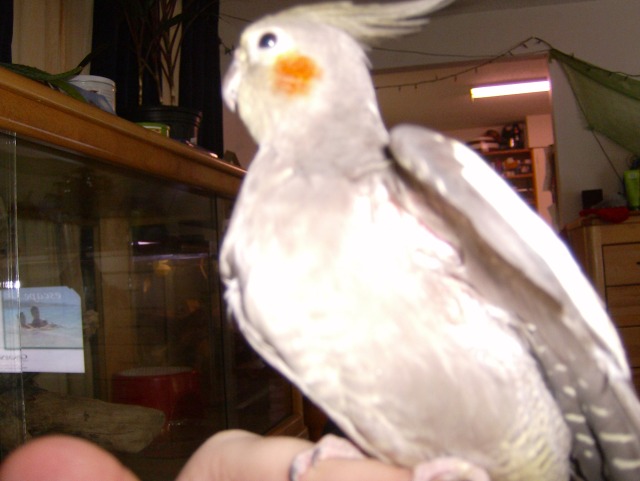 my cockitale mocha
QuestionQUESTION: I have a cokitale that will be 3 on A
my cockitale mocha
QuestionQUESTION: I have a cokitale that will be 3 on A
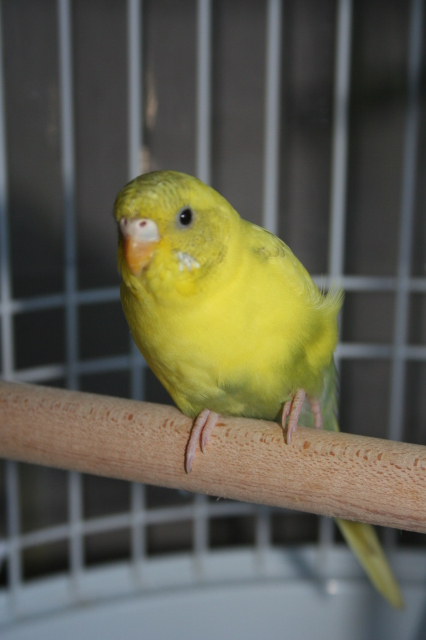 Budgie has broken foot?
Question
Maggies foot
Hi there! I got a baby budgie a f
Budgie has broken foot?
Question
Maggies foot
Hi there! I got a baby budgie a f
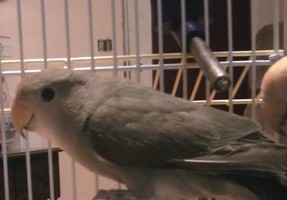 My odd lovebird
Question
Honey
I have a love bird that is approximately
My odd lovebird
Question
Honey
I have a love bird that is approximately
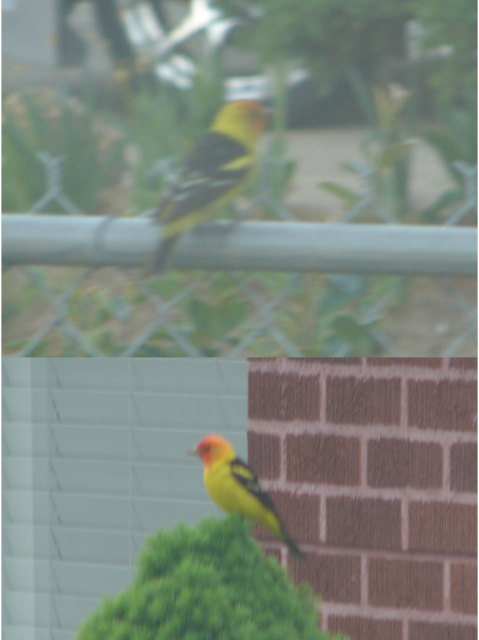 Wild or Domestic?
Question
Pretty Birds
There are these three birds in my
Wild or Domestic?
Question
Pretty Birds
There are these three birds in my
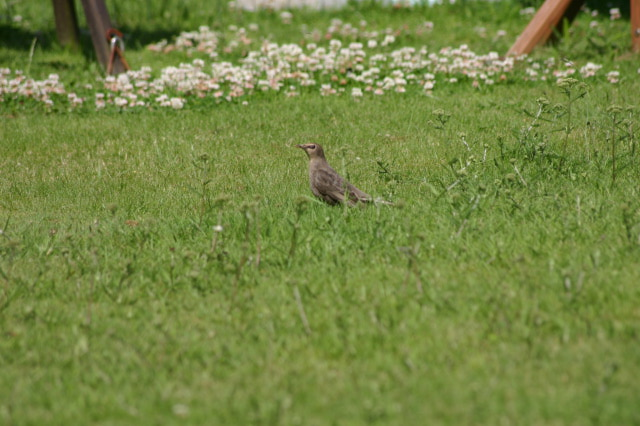 Identification of a bird
Question
Bird name
Please can you advise what th
Identification of a bird
Question
Bird name
Please can you advise what th